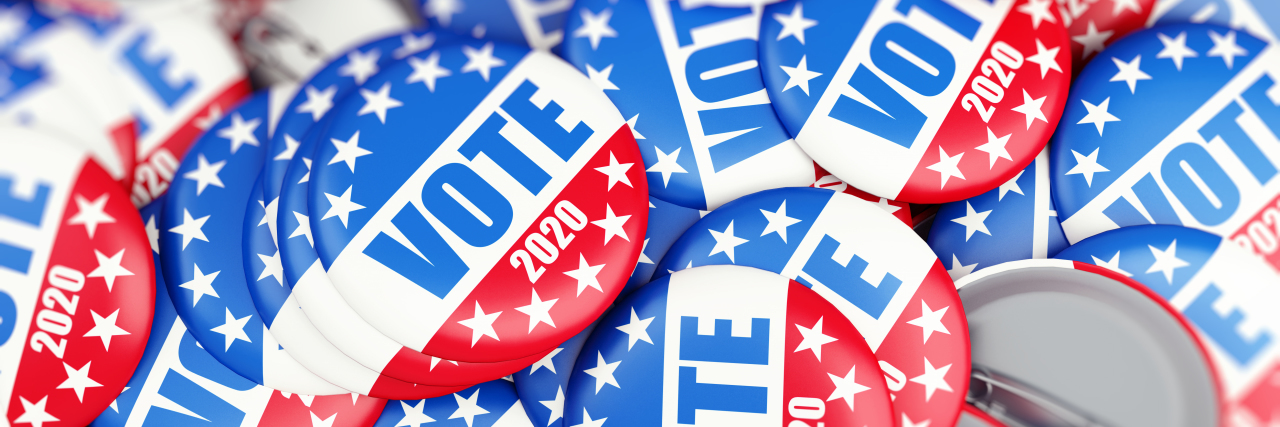New polling data of the battleground states shows that the disability community is large and electorally contested, but the issues they care about most are not being sufficiently addressed.
The phone poll of 1,000 registered voters across 16 presidential and Senate battleground states was conducted by Stan Greenberg, Ph.D., and the polling firm Greenberg Quinlan Rosner Research (GQRR), on behalf of the disability inclusion organization RespectAbility. The memo, cross-tab data and PowerPoint are available to download now.
The key findings of the poll include:
The disability community is more than half the battleground.
More than half of the electorate in the battleground (59 percent) self-identifies as having a disability (16 percent), having a family member with a disability (32 percent) or having a close friend with a disability (11 percent).
The disability community in the battleground states resembles voters overall — white (73 percent) and people of color (26 percent), college graduate (60 percent) and non-college graduate voters (36 percent), urban (54 percent) and rural voters (46 percent).
The disability community is electorally contested.
These voters lean slightly more Democratic than voters outside of the disability community, but they are still politically contested at the presidential, senatorial, and congressional level. Their support for Democratic candidates is virtually identical to voters overall, though voters facing a personal disability are slightly more Democratic than the broader disability community.
The disability community is focused on issues that directly impact their lives.
Voters in this community focus more on Social Security and Medicare than voters overall, and voters facing personal disabilities are far more likely to cite government disfunction and prescription drug prices as important issues.
The disability community’s agenda draws broad public support but is not being addressed.
Voters broadly agree that presidential campaigns should be made accessible to people with disabilities. A 90 percent majority of voters overall and 91 percent of voters in the disability community believe it is very or somewhat important for presidential candidates to make their campaign accessible. These views have intensity, with a 69 percent majority of voters overall and a 73 percent majority of voters in the disability community who find it very important that candidates make their campaign accessible.
Similarly, broad majorities of voters describe themselves as more likely to support candidates who ensure children with disabilities get the education and training they need to succeed, and similar majorities describe themselves as more likely to support candidates who back job and career opportunities for people with disabilities. The intensity of these issues is nearly as high among voters overall as it is in the disability community.
“The disability community makes up a solid majority of the battleground electorate, yet few campaigns make sure their materials are fully accessible to everybody despite the clear evidence that it could be electorally rewarding,” said Greenberg. “There is broad agreement among both voters overall and voters within the disability community that more needs to be done to help people with disabilities integrate into the workforce, and campaigns would do well to pay more attention to addressing these issues.”
The margin of error for this poll is plus or minus 3 percent. RespectAbility is a nonprofit, nonpartisan organization that fights stigmas and advances opportunities so people with disabilities can fully participate in all aspects of their communities. RespectAbility does not rate or endorse candidates.
Getty image by 3d foto.

